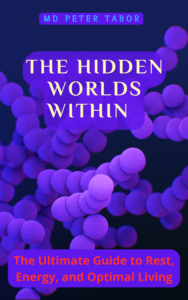—>health.bedscape.com (Main Page) —>Blogposts -Because Your Health is Important
—>Bedscape.com –Become a Warrior in Bed
Protein is everywhere in 2025—shakes, bars, fortified snacks, even high-protein ice cream. But could we be overdoing it? The protein overconsumption effects are starting to raise eyebrows as fitness buffs, diet enthusiasts, and everyday folks pile on the grams. Searches like “too much protein risks” and “how much protein is too much” are spiking, and for good reason—overloading on protein isn’t as harmless as it seems. In this deep dive, we’ll explore why protein overconsumption is a modern issue, its downsides, and how to strike the right balance.
Why Protein Overconsumption Is Trending in 2025
Once upon a time, protein deficiency was the worry. Now? It’s the opposite. Protein overconsumption these days is fueled by a perfect storm of diet culture, marketing, and misinformation. Here’s what’s driving it:
The High-Protein Hype
-
- Fitness Boom: Gym-goers chase muscle gains with 2–3 grams of protein per kilogram of body weight—way above the average need.
-
- Keto & Paleo Diets: Low-carb trends push meat-heavy meals, often exceeding daily protein limits.
-
- Convenience Foods: Protein-packed products flood shelves, tempting even non-athletes to overindulge.
The Numbers Tell the Story
The Recommended Dietary Allowance (RDA) for protein is just 0.8 grams per kilogram of body weight (about 56 grams for a 154-pound person). Yet, studies show some Americans eat double that—sometimes hitting 100–150 grams daily. With how much protein is too much trending online, it’s clear we’ve tipped into excess.
 The Risks of Too Much Protein: What’s at Stake?
The Risks of Too Much Protein: What’s at Stake?
Protein’s a hero for muscle repair and satiety, but the too much protein risks can sneak up on you. Here’s what happens when you overdo it:
1. Kidney Strain: A Silent Burden
Your kidneys filter protein’s byproducts, like urea. Excess protein forces them to work overtime, potentially raising the risk of kidney damage—especially if you’re already at risk (e.g., with high blood pressure). A 2023 study in Nephrology Dialysis Transplantation linked chronic high-protein diets to faster kidney function decline in some groups.
2. Digestive Drama: Gut Overload
Ever feel bloated after a protein binge? Overconsumption—especially from processed powders or red meat—can tax your digestive system. Symptoms include:
-
- Constipation (low fiber from meat-heavy diets).
-
- Nausea or discomfort (from rapid intake, like chugging shakes).
3. Bone Health Concerns: Calcium Clash
High protein intake, particularly from animal sources, can increase calcium loss in urine. Over time, this might weaken bones, countering the “strong body” myth. Research in The American Journal of Clinical Nutrition suggests moderation is key to avoid this trade-off.
4. Heart Risks: The Meat Connection
Loading up on protein often means more saturated fat and cholesterol from steak or bacon. Studies, including one from Circulation in 2022, tie excessive animal protein to higher cardiovascular disease risk. Plant-based proteins? Less of a worry.
5. Dehydration: A Hidden Cost
Breaking down extra protein demands more water. Skimp on hydration, and you might face fatigue, headaches, or worse. Athletes guzzling shakes without balancing fluids are especially prone.
How Much Protein Is Too Much? Finding the Line
So, how much protein is too much? It depends on you—your weight, activity level, and health—but here’s a breakdown:
-
- General RDA: 0.8 g/kg (e.g., 46g for a 130-lb woman, 56g for a 154-lb man).
-
- Active Folks: 1.2–2.0 g/kg for athletes or weightlifters (e.g., 90–150g for a 165-lb gym-goer).
-
- Danger Zone: Regularly exceeding 2.5–3.0 g/kg (e.g., 180g+ for a 154-lb person) without medical need.
Most people don’t need more than 1.6 g/kg, per a 2021 Journal of the International Society of Sports Nutrition review. Beyond that, benefits plateau—and risks climb.
Signs You’re Overconsuming Protein
Not sure if you’re in the red? Watch for these clues:
-
- Constant thirst or dry mouth.
-
- Unexplained fatigue or sluggishness.
-
- Digestive woes (bloating, constipation).
-
- Cloudy urine (a kidney stress signal).
If these sound familiar, it might be time to rethink your intake.
Why Protein Overconsumption These Days Is a Bigger Deal
In 2025, the stakes feel higher. Ultra-processed diets, TikTok fitness challenges, and “protein hacks” amplify the issue. Plus:
-
- Aging Population: Older adults with declining kidney function are more vulnerable.
-
- Sustainability Push: Over-reliance on animal protein clashes with eco-goals (think methane emissions from cattle).
-
- Health Trends: Misinformation—like “more protein = more muscle, no limits”—keeps the cycle spinning.
Searches for protein overconsumption effects reflect growing awareness. People want answers—and balance.
How to Avoid the Risks and Optimize Protein
Good news: you can enjoy protein’s perks without overdoing it. Here’s how:
1. Know Your Needs
Calculate your ideal intake based on weight and activity (use an online calculator or the RDA). Stick to it.
2. Mix Your Sources
Balance animal proteins (if you eat them) with plant-based options—think beans, lentils, tofu, or quinoa. Plants often come with fiber and fewer risks.
3. Space It Out
Spread protein across meals (20–30g each) rather than slamming 100g in one shake. Your body uses it better this way.
4. Hydrate Like a Pro
Drink 8–10 cups of water daily—more if you’re active—to support kidney function.
5. Listen to Your Body
Cut back if you feel off. No fitness goal is worth long-term health hits.
Striking the Protein Balance in 2025
Protein overconsumption these days is a modern paradox—too much of a good thing turning sour. While protein’s vital, gorging on it won’t make you invincible. The too much protein risks—from kidney strain to heart concerns—remind us that moderation wins. In a world obsessed with “more,” maybe the real flex is knowing when to stop.
How do you manage your protein intake? Share your thoughts or questions below—I’d love to hear what’s working for you!
Self-Transformation Notebook Pack $19
Unlock your potential with this essential $19 bundle of five life-enhancing guides! Ready to thrive? Start here.
- END YOUR SNORING: Snoring isn’t just noisy—it can signal serious health risks like sleep apnea. Discover how to stop it naturally, without surgery, using quick, daily exercises that clear your airways and restore peaceful sleep.
- MASTER YOUR SLEEP: Poor sleep can sap your energy, fog your mind, and weaken your health over time. Master your sleep naturally—no pills needed—with proven habits and routines that unlock deep, refreshing rest tailored to you.
- THE HIDDEN WORDS WITHIN: Your body harbors unseen universes—trillions of microbes shaping your health, mood, and future. The Hidden Worlds Within reveals how these tiny allies in your gut and mouth can falter, fueling chronic illness and mental strain. With practical steps and fermented food recipes, harness their power—no lab required—to thrive from the inside out.
- SYMMETRY IN MOTION: ENHANCING FACIAL BALANCE THROUGH EXERCISES: Discover the secrets to a more balanced face without surgery—through simple exercises, the viral Mewing technique, and everyday habits that reshape your features over time. This book unveils how your jaw, cheeks, and eyes can find harmony, blending science, practical steps, and real stories to guide you toward subtle, confidence-boosting symmetry.
- ASTRAL AVAKENING: YOUR COMPLETE GIUDE TO OUT OF BODY EXPERIENCES, LUCID DREAMING AND CONSCIOUSNESS EXPLORATION: Unlock the secrets of your consciousness and soar into the astral realm with this transformative guide. From mastering out-of-body experiences to weaving their calm and creativity into your daily life, this book offers a 30-day journey to awaken your spirit and explore the unseen. Ready to lift off?
 PAGES
PAGES
Boost Your Gut Health Naturally with Microbiome Secrets
Qigong for Beginners: A Simple Guide to Start Your Practice
How to Get Better Sleep: Tips for a Restful Night
Unlocking the Power of Cold Therapy: The Surprising Benefits of Cold Showers
The Power of Fasting: Exploring Water Fasting and Intermittent Fasting
The Power of Conscious Breathing: Unlocking Health and Well-being
The Power of Physical Activity: Unlocking the Benefits of Exercise
The Ultimate Guide to Healthy Supplementation: Boost Your Well-Being Naturally
Harmful Foods to Avoid for Optimal Health
Healthy Food: The Fuel that Powers Our Bodies
Improve Oral Health Naturally with Microbiome Tips
How to Stop Snoring Naturally with Simple Solutions at Home
BLOGPOSTS
The Incredible Benefits of Fermented Foods: A Guide to Supercharge Your Health
The Benefits of Being Vegan: Good for Animals, the Planet, and Your Health
How Much Land Use We Could Spare by Consuming Vegan Food: The Science Says a Lot





